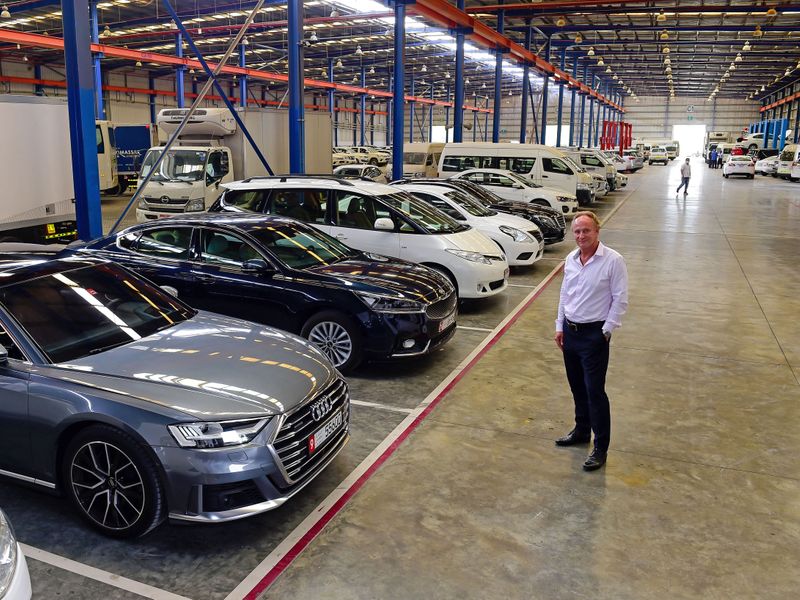Dubai: While stepping out these days, are you likely to hail a taxi? Or more inclined to use a ride-sharing service? Or do you still have concerns about using either given the concerns about shared commuting in the time of COVID-19?
The UAE’s ride hailing and sharing businesses - and the consumers that use them - are still grappling with these questions. Then there is the demand factor – fewer meetings are held face-to-face, and after-hours social gatherings are still down to a bare minimum, all of which means vastly reduced need for rides. The pandemic has been handing out life lessons, and these mobility-focussed businesses are learning on the ride, so to speak.
Market sources say demand is still below 20-30 per cent of what is deemed normal in a pre-COVID-19 world, even with all the precautions being taken to soothe rider concerns about catching an infection. But even within these demand patterns, there are some opportunities businesses want to latch on to.
“Public transportation, ride hailing and taxis have seen significant drops in user trips,” said Vilhelm Hedberg, founder of ekar, the pay-as-you-go service provider. But “shared mobility on the other hand - such as car sharing, scooter sharing, and subscription leasing - have seen a spike in demand.
“We envision this trend will continue as consumers are becoming increasingly conscious to travel in a private sanitized space.”
Read More
More share than hail
This way, users book a vehicle to take them around for their specific needs. They get to do their own driving, and in these safety-conscious times, more users would prefer that than have someone drop them over. More users are switching from ride hailing to doing their own driving for their daily commuting needs… until such time they get their own car.
Reliant on residents
The nature of the ride-share business is to rely on residents than tourists, unlike say at Uber, where visitor call-ins represent a sizeable share of the traffic.
“Prior to COVID-19, fewer than 5 per cent of ekar users were visitors,” said Hedberg. “Residents - our core demographic - typically book ekars for commuting to work, running errands, and other daily tasks.
“Post-COVID-19, we have seen a 15 per cent increase in average trip lengths, as customers are taking longer trips, notably for enjoying staycations and other local trips.”
Lease, not buy?
The UAE’s new car sales market too is taking the long road back to recovery, and sources say should be closing out this year at over the 150,000-unit mark as against the 250,000 plus average in recent years.
That creates more opportunities to lease, is how Richard Sikkel, CEO of Massar Solutions sees it. The company has its ‘PayPerKay’ app service that allows users to “manage how much they spend on a monthly basis”.
“It’s up to you - you’re in control,” said Sikkel. “With regular car leasing options, you pay a fixed amount regardless of how many kilometers you drive. With PayPerKay, you pay for what you use. There are no surprises.”
That’s a message cost-conscious users are willing to hear. New car sales are unlikely to see an immediate recovery in the early months of 2021, with most dealerships forecasting a 5 per cent improvement before hitting a higher gear in the second-half.
So, each time, a resident delays a decision to buy new, it’s a chance for ride sharing companies to press their claims.
“Customers will definitely be saving on money as compared to other expensive car rental services in addition to the debt of and high interest fees for banks [on new cars],” said Sikkel. “The response rate to PayPerKay has been huge as people are looking forward for a service where they will be charged for what they use - and not a fixed amount where they are obliged to spend every month.”

Pack in more
The pandemic has also accelerated the pace at which change takes places in the mobility business. Careem, the ride hailing service, added more micro-services into its app, so much so that users tend to think of the brand for needs other than calling in a limousine.
The Careem ‘Super App’ allows users to purchases from supermarkets, pharmacies or other businesses, and with the ‘captain’ doing the delivery. This is also a natural extension to the food delivery service it had introduced earlier. (In Dubai, the updated app even offers money transfer and mobile recharge as add-ons.)
A helping hand
As government-imposed COVID-19 lockdowns temporarily blocked the service in early 2020, we took the opportunity to focus on our tech builds
At ekar, the current circumstances meant reaching out to traditional fleet and rent-a-car operators. “COVID-19 has had a crippling impact to the traditional car rental industry, which is reliant on tourism,” said Hedberg. “Large rental companies such as Hertz have even declared bankruptcy.
“To support rental and leasing companies in the Gulf, we released ‘ekar Fleet’ SaaS (software as a service) platform that allows car rental and leasing companies to tech-enable their vehicles onto the ekar app.
“They stand to benefit from a fully contactless rental process, increased fleet utilization via short-term mobility, driver behavior analytics, and tracking of vehicles in real-time.
“Post-COVID-19, the situation has simply sped this up. We’ve seen our fleet expansion plans quadruple in size with over 5,000 cars committed to the programme.”
The mobility business is getting reshaped in real-time. Whether it’s ride hailing or sharing, or car rental as a subscription service, COVID-19 is influencing that change. The speed has just picked up…
_resources1_16a30b3ecc0_original-ratio.jpg)
https://ift.tt/2JE71r0






No comments:
Post a Comment